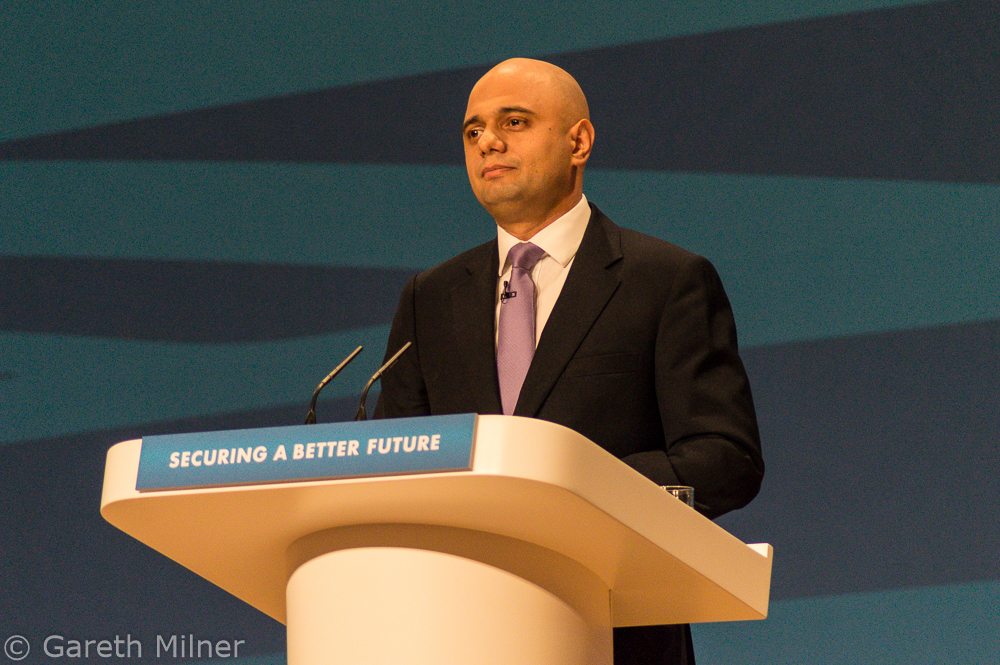Communities Secretary Sajid Javid has rejected a proposed coal mine in Northumberland due to concerns over how the mine would fit with the UK’s transition to a low carbon economy and its impact on local communities.
Campaigners have long argued against the mine, saying it does not fit with the UK’s climate goals and would ruin the local tourist industry based around the Druridge Bay beauty spot.
Earlier this month, Javid told campaigners he was delaying his decision without providing a reason why.
I’ve made a decision on planning permission for a surface coal mine at Highthorn, Druridge Bay, Northumberland – taking into account all evidence and material considerations, inc. potential environmental impacts, I’ve refused the application – my letter: https://t.co/1CGFCPBZMe?
— Sajid Javid (@sajidjavid) March 23, 2018
A letter from the Ministry of Communities and Local Government to the company that wanted to build the mine, Banks Mining, states that Javid:
“… agrees that Green House Gas (GHG) emissions from the proposed development would adversely impact upon measures to limit climate change. He further agrees that most of the GHG emissions would be emitted in the short term, resulting in an adverse effect of substantial significance, reducing to minor significance in the medium term; and that Green House Gas emissions in the long term would be negligible, but that the effects of carbon in the atmosphere would have a cumulative effect in the long term (IR115).
“Given that cumulative effect, and the importance to which the Government affords combatting climate change, he concludes that overall the scheme would have an adverse effect on Green House Gas emissions and climate change of very substantial significance, which he gives very considerable weight in the planning balance.”
Banks Mining operates the Shotton and Brenkley coal mines in Northumberland. The company claims to mine around one million tonnes of coal each year.
The Shotton coal mine is situated on the Blagdon Estate, owned by hereditary peer Matt Ridley. Ridley is an advisor to climate science denial campaign group, the Global Warming Policy Foundation.
The Druridge Bay decision could still be subject to appeal.
Banks Mining released a long statement in which it claimed Javid’s decision was to the detriment of local business and the UK‘s energy sector. It said:
“This is an absolutely perverse decision which flies in the face of the recommendation for approval given by Mr Woolcock, the Planning Inspector – the expert appointed by the Government itself to assess this scheme – after his careful consideration of all the facts laid out at the Public Inquiry, as well as the unanimous support we had for the scheme from an experienced, cross-party Northumberland County Council planning committee.
“It has been made for purely political reasons and is totally contrary to the principles of local decision-making that previously appeared so important to Mr Javid. The Planning Inspector’s clear and carefully-considered judgement was that ‘ the national benefits of the proposal would clearly outweighthe likely adverse impacts,’ yet Mr Javid has chosen to flagrantly disregard this expert opinion from the comfort of his London office without ever having taken the time to even visit the area in question.”
The company said it would “carefully review the precise reasons for the Secretary of State’s decision before deciding on the most appropriate next steps to take.”
Campaigners were quick to celebrate Javid’s decision, however.
Isobel Tarr, a campaigner with Coal Action Network, told DeSmog UK:
“Sajid Javid rightly responded to a hard fought community campaign to save Druridge Bay. Now he must respond urgently to the residents near to Banks Groups’ other imminent opencast mine, Bradley in Country Durham, whose letter and 88,000 strong petition urged him to intervene before work starts imminently.
“Like Druridge, this is also a unique landscape and rich habitat. If the government is serious about meeting emissions reductions under the Paris Agreement it must put a stop to all new opencast coal mines, now.”
Rose Dickinson, Friends of the Earth campaigner, said in a statement:
“This is a significant victory for local residents and the climate, it means an important step forward has been taken in ending the era of fossil fuels.
“This is the first coal mine ever to be rejected in the UK because of climate change impacts – a vindication for everyone who has been calling for fossil fuels to be left in the ground.”
Sam Bright, an environmental lawyer with Client Earth, said in a statement:
“We congratulate the government for taking the only thinkable decision and blocking this new coal mine because of its huge future climate impacts.
“It’s the first time ministers have blocked a project on climate change grounds. The tone is set: we expect authorities to take a similar approach from now on when considering fossil fuel developments in the UK.”
Image: Gareth Milner/Flickr CC BY 2.0
Subscribe to our newsletter
Stay up to date with DeSmog news and alerts







